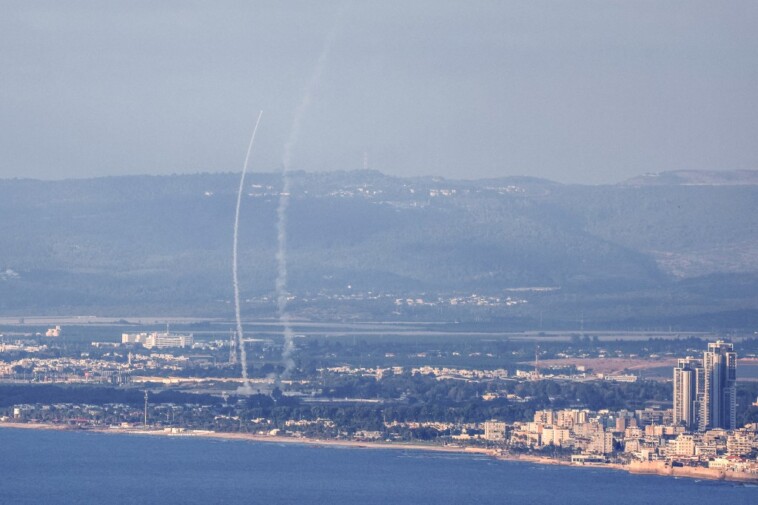The Israel has vowed to take out Hezbollah’s drone unit after one of the terrorists’ suicide aircraft slipped through the country’s air defenses — killing four teenage Israeli soldiers and injuring nearly 60 people outside of Haifa on Sunday, officials say.
Hezbollah’s Unit 127, the battalion responsible for producing and operating the Lebanese terror group’s drones, has become the No. 1 priority for the Israel air force, since the enemy’s unmanned aerial vehicles have proven harder to deflect than its constant missile barrages, sources told the Times of Israel.
Air force officials said they would be ramping up Israel’s aerial defenses after an investigation found that an enemy drone near the Golani training camp was incorrectly believed to have been destroyed.
The Israeli military said multiple drones had been fired by Hezbollah on Sunday, with three making it over the border before they were reportedly struck down by Israel’s Air Force, Navy and legendary Iron Dome defense system.
An investigation then revealed that a UAV that was chased by Israeli jets and helicopters was not actually destroyed after disappearing from sight and radar.
The drone instead continued its flight as it pinged in and out of Israeli detection before hitting the training camp, the Times of Israel said.
The blast killed 19-year-olds Omri Tamari, Yosef Hieb, Yoav Agmon and Alon Amitay, with Hezbollah claiming responsibility for the attack as retaliation for an Israeli airstrike in Beirut last week that killed 22 people.
Since Hezbollah began its daily attacks against Israel last year, the terror group has fired about 1,200 drones, with an estimated 221 managing to sneak through Israel’s defenses, according to the Israel Defense Force.
Orna Mizrahi, a senior research fellow at the Israeli Institute for National Security Studies in Tel Aviv, warned that Hezbollah is leaning in favor of drone attacks given they’re much cheaper and harder to detect than missiles.
Israel War Update
Get the most important developments in the region, globally and locally.
Thanks for signing up!
“[They] are small in size, very light, with very low radar signature,” Mizrahi told CNN.
After Sunday’s attack, the IAF said it is expanding its areas of warning whenever a threat is detected, since witnesses claimed there were no siren alarms triggered before the explosion at the Golani base.
The Israeli military also said it would treat all Hezbollah drones as active until there is sufficient evidence of a crash or successful interception.
Israel had previously focused its operations in Lebanon on Hezbollah’s missile launching sites, which have enabled the terror group to fire more than 100 projectiles at northern Israel almost every day.
Hezbollah’s missile fire has begun to reach deeper and deeper into Israel, with the IDF reporting the interception of at least three rockets Monday aimed at central Israel.







